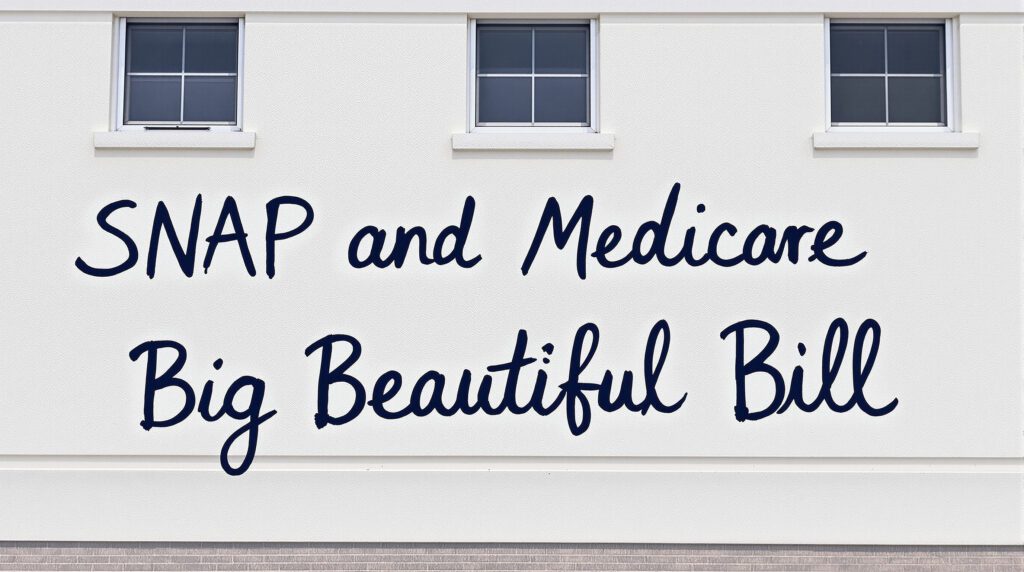The budget reconciliation act that Congress passed in 2025 — known as the “One Big Beautiful Bill” until “One Big Beautiful” was stripped from the Act’s title — affected seniors in several ways. Changes in the Medicaid program that won’t take effect until after the 2026 midterm elections is likely to cause millions of Medicaid recipients to lose their coverage. Seniors who depend on Medicaid to fund their nursing home stays and unpaid caregivers who devote their lives to caring for aging relatives may also lose their Medicaid coverage.
While the Social Security Administration claims that the Act eliminated the taxation of Social Security benefits for most recipients, it actually added a temporary increase in the standard deduction for people who don’t itemize their taxes. That increase might reduce the overall tax bills of seniors, but it expires after four years and leaves unchanged the inclusion of some Social Security benefits in the senior’s taxable income.
The law has other consequences for seniors that are less well publicized. A likely decrease in SNAP benefits may harm low-income seniors, while the Act also causes indirect harm to some Medicare beneficiaries.
SNAP
The Supplemental Nutrition Assistance Program (SNAP) was enacted in 1964 to provide relief for low-income people who were at risk of experiencing malnutrition. Once known to the public as the “food stamp program,” SNAP beneficiaries now receive a card they can use to pay for certain food and nonalcoholic beverages.
The SNAP program has substantially reduced food insecurity in the United States. Food insecurity contributes to malnutrition and related health conditions, including chronic obstructive pulmonary disease, diabetes, and kidney disease.
Ten million Americans who have reached the age of 60 are eligible for SNAP benefits, but only 4.8 million participate in the program. While seniors who incur more than $35 a month in out-of-pocket medical expenses can deduct those expenses from their gross income when applying for SNAP, many seniors fail to perform that calculation and do not realize that they are eligible for the benefit.
The Act reduces SNAP benefits by making states pay at least 5% of the benefits. States that are perceived to have a high error rate — that is, states that are seen as giving SNAP benefits to people who aren’t entitled to them — will be required to pay up to 25% of the benefits. States will therefore have an incentive to deny benefits to people who are eligible for them, effectively eliminating people from the program to avoid an increase in the state’s SNAP budget.
As AARP warns, states may be “forced to change eligibility requirements, making it harder for individuals to qualify for the benefits.” The harm will likely be greatest in low-tax states that seniors might otherwise consider attractive retirement destinations because those states will have the most difficulty paying for the new costs they will be forced to incur.
Medicare
The Act does not directly cut Medicare benefits. It does, however, raise the budget deficit. Under the 2010 Pay-As-You-Go Act, the Office of Management and Budget (OMB) must determine whether a new law will increase the deficit over periods of 5 and 10 years. If either measure shows an increase in the deficit attributable to that law, OMB must sequester funds to eliminate that increase.
The Pay-As-You-Go Act limits required reductions in Medicare spending to 4% of current spending. The Congressional Budget Office (CBO) estimates that the Medicare budget could be reduced by $490 billion from 2027 to 2034 to comply with the law. Congress knew about that law, making its claim that the budget reconciliation Act does not reduce Medicare somewhat disingenuous.
It is difficult to understand how the Medicare budget could be reduced by 4% each year without reducing Medicare benefits. There is no evidence that the budget cuts will only eliminate waste, fraud, or abuse. Beneficiaries will likely find their services reduced or will be required to pay more for services (by increasing the co-pay from the current 20% or by increasing their annual premium).
The CBO also estimates that the Act will cause 1.4 million low-income Medicare recipients to lose a subsidy that helps them pay their Medicare premium. Some low-income Medicare recipients will also lose the benefit of prescription drug cost-sharing, increasing the risk of poor health outcomes.
